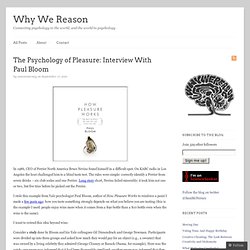

Pauline Briand
How does one go about becoming a Futurist? - Futurist.com: Futurist Speaker Glen Hiemstra. From time to time we respond to questions about the future sent in via email by readers.

We don’t have a lot of time for this, but when a question seems especially interesting we offer our thoughts. Jay Anderson asked: “How does one go about becoming a “Futurist?” Is it a specific degree program, or is it more of a general studies kind of thing? How about a “Technologist?” Response by Glen Hiemstra, 2000 Jay, I am not that familiar with how one becomes a “technologist” or “lead technologist” and assume that such a position requires the ability to design and/or program technology. However, we can give you some guidance on becoming a Futurist. A second path is through the more traditional education institutions. Finally, a third path is the one that I took, or rather was given.
Legume 2. Quadrature. 3D. Livres. Petrichoeur. Recettes. Livres de recette. Food. Elderflower Liqueur. - Jammy Chicken. Elderflowers were the picture of abundance just a few weeks ago, and it is pretty clear that their final gasp marked the passing of summer's easy start and the arrival of uncompromising, full-on summer herself. It may be an end of the elderflower, but it is the beginning of the elder berry. I must confess, though, that I have yet to use the berries for anything, being too ambivalent in my feelings for their fierce medicinal taste and wicked staining purple dye.
I relish the flowers each and every year, though, and am just a little sad to see them brown and dry, because it means that the easy living of early summer, filled with warm promise and golden light, are another year away, again, leaving us with hazy shimmers and white-hot sun. To celebrate the elderflower, I have cordialed, I have fizzed, and this year I soused as well. Until I saw this - which only confirms my suspicion that there is nothing truly original out there (except maybe molecular gastronomy).
The Psychology of Pleasure: Interview With Paul Bloom. In 1986, CEO of Perrier North America Bruce Nevins found himself in a difficult spot.

On KABC radio in Los Angeles the host challenged him to a blind taste test. The rules were simple: correctly identify a Perrier from seven drinks – six club sodas and one Perrier. Long story short, Nevins failed miserably; it took him not one or two, but five tries before he picked out the Perrier. I stole this example from Yale psychologist Paul Bloom, author of How Pleasure Works to reinforce a point I made a few posts ago: how you taste something strongly depends on what you believe you are tasting (this is the example I used: people enjoy wine more when it comes from a $90 bottle than a $10 bottle even when the wine is the same).
I want to extend this idea beyond wine. Consider a study done by Bloom and his Yale colleagues Gil Diesendruck and George Newman. Why do we care so much about origins? Bloom’s idea is that we are all essentialists. This part of our conversation made a lot of sense to me.
Revue de presse. Biodiv.